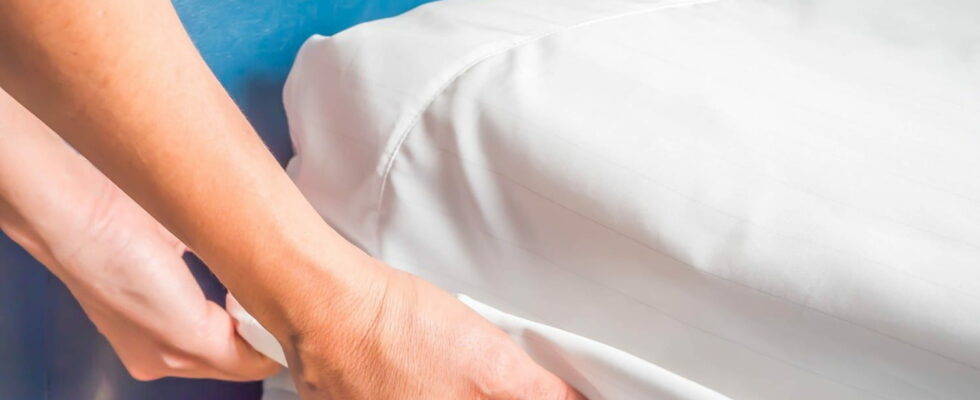The sheets you sleep in every night don’t need to be changed every two weeks or every month: that’s what hygiene experts recommend. And for good reasons!
Nothing is more pleasant than slipping into a bed with fresh, clean sheets. However, behind this daily gesture lies an often neglected question: how often should you really change your sheets? This ritual, which may seem trivial, plays a crucial role in our hygiene and therefore our health.
In fact, even if they appear clean, the sheets accumulate an unexpected amount of dirt over the night. Between sweat, dead skin cells, various bodily fluids and even leftover makeup or creams, our beds can quickly become a nest of bacteria and allergens. And just because you shower every night doesn’t mean bacteria and germs don’t multiply!
Beyond these bodily residues, mites constitute a major problem. These tiny arachnids feed on dead skin cells and their droppings can trigger allergies and respiratory problems. Unfortunately, we do not realize the number of microbes that proliferate in dirty bed linen. We must realize that we sweat almost a liter of water every night, and that this sweat is a favorable environment for mites and germs.
So when should you change your sheets? most people do it once every two weeks, or even once a month. But this frequency is insufficient for sleep hygiene experts who recommend doing it every week instead. A frequency which may seem high, but which is justified by the rapid proliferation of micro-organisms in a hot and humid environment such as a bed.
Note that this recommendation may vary depending on individual habits. People who sweat a lot at night, those who sleep naked, those who sleep with their pets, those who regularly eat in bed, or those who have allergies or skin sensitivities need to change their sheets much more often, every three to four days. On the other hand, those who wash before bed and wear pajamas to sleep can actually wait eight to ten days.
The choice of sheets can also influence this frequency. Natural materials like cotton allow for better ventilation and are easier to maintain than synthetic fabrics, which can retain more moisture and bacteria. Additionally, using a mattress protector can help prolong the cleanliness of the bed. Be careful, pillowcases are often overlooked when it comes to doing laundry. Yet they can be one of the dirtiest textiles in your home. Also, although it can be tedious, we absolutely must remember to change our sheets regularly in order to guarantee the quality of our sleep and preserve our health.
